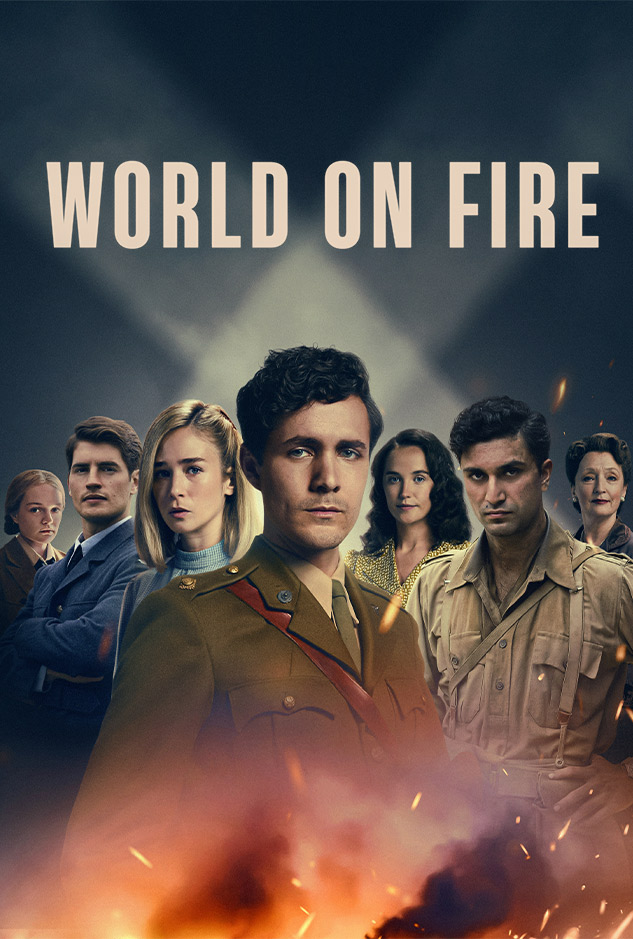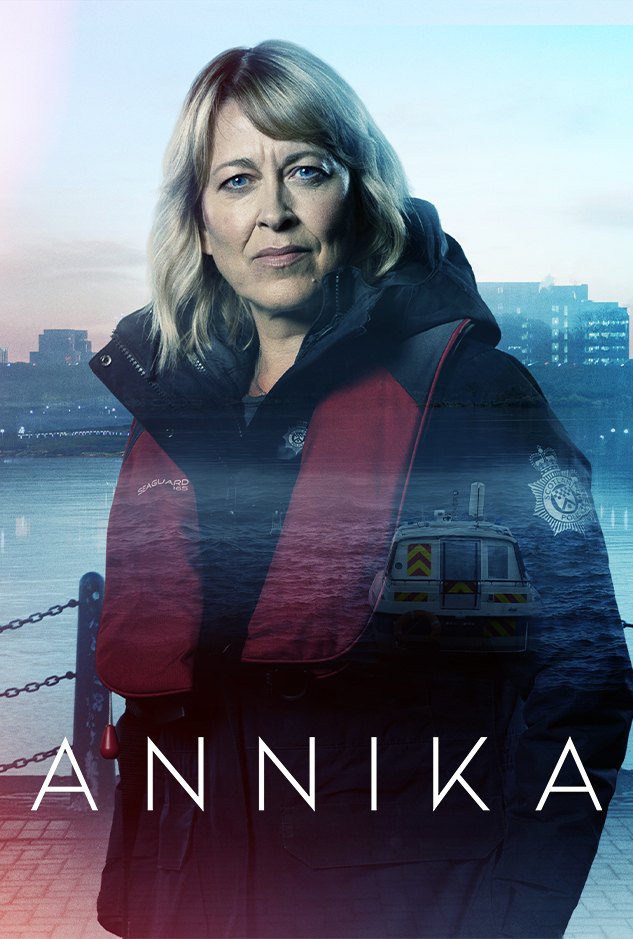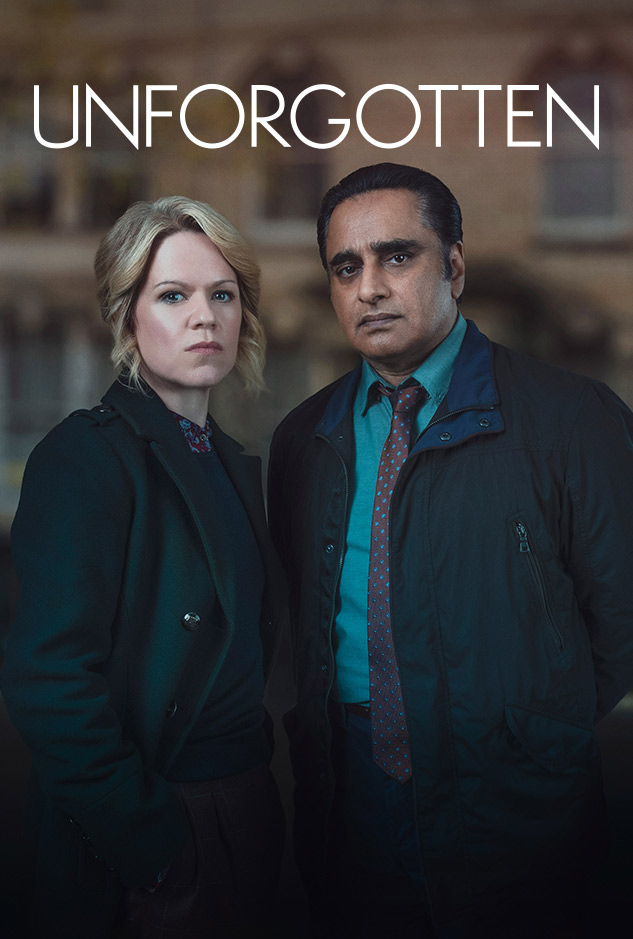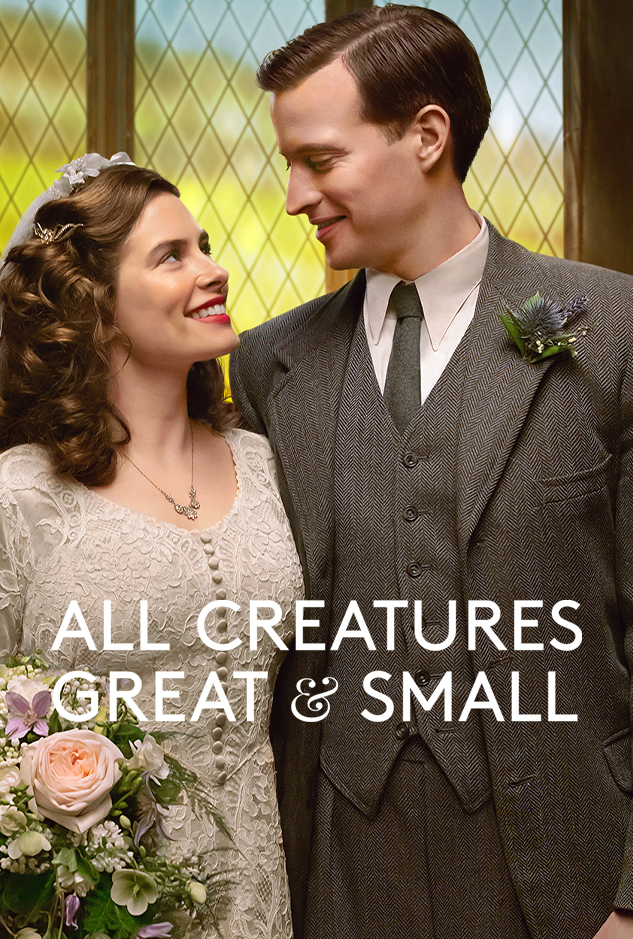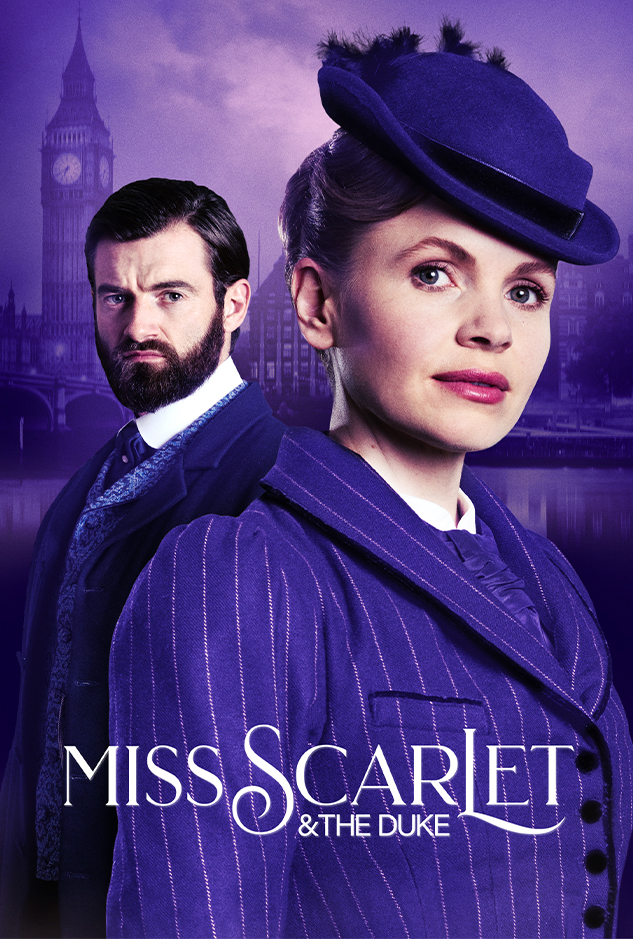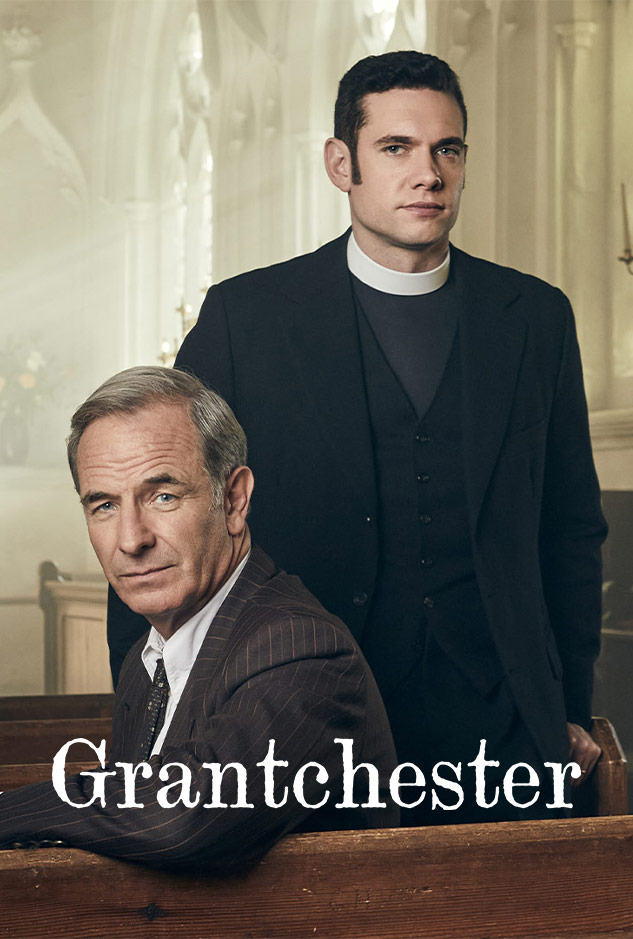Saskia Reeves Interview: The Journeys & Joys of Making “Us”
Starring alongside Tom Hollander in Us, actor Saskia Reeves brings a wry spirit to the role of artist, mom, and aspiring singleton Connie Peterson. Find out what this frequent MASTERPIECE alum, whose diverse and memorable turns include Roadkill, The Child in Time, Wolf Hall, and more, thought about her unique character, plus what it was like making the bittersweet dramedy in a whirlwind tour of some of Europe’s greatest cities. You may even learn a travel tip or two! Missed Us or want to watch it again? Stream the entire miniseries with PBS Passport, an added member benefit.
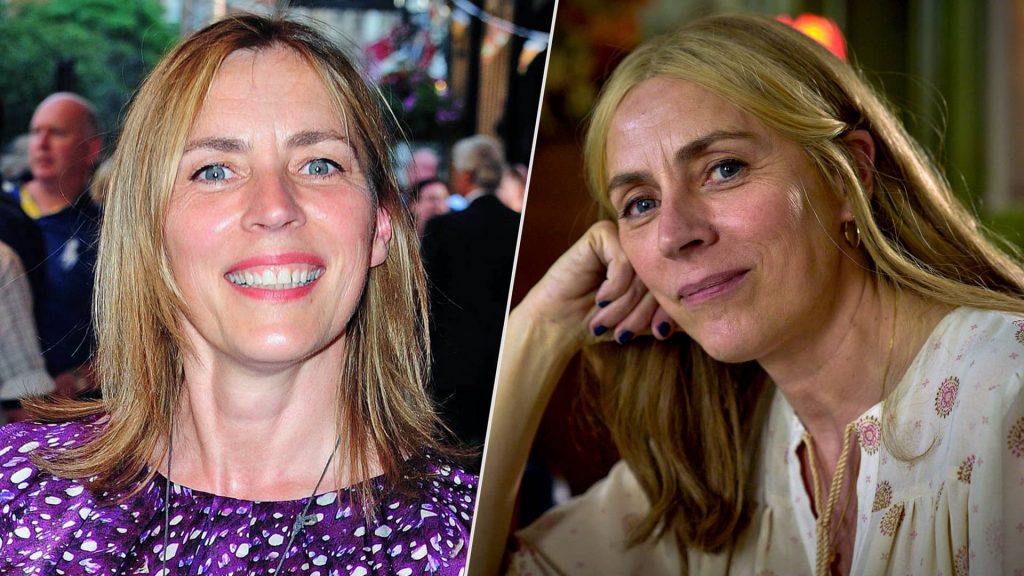

While the characters of Us are very specific, the show portrays a universal span of a family relationship: romance, the discovery of young love, the shared project of child rearing, and then those uncomfortable unknowns that lie ahead after the children have grown. Can speak to its universality?
There’s a horrible phrase, “empty nesters,” isn’t there? The teenager leaves and suddenly you’re staring across at your partner going, “What the hell of we got in common with each other?” So on one very stereotypical level, I think that’s what’s going on here. But you’ve got quite a few dysfunctional relationships, especially the father and the son, who have very different interests, which in itself is universal at this point, when kids are 18, 19 years old. I have a 19-year-old and a 15-year-old, and it’s difficult being a parent, especially with the older child, because I’ve never been a parent to a 19-year-old before; I don’t know what it’s like.
I think a lot of people feel like that, and they see themselves in this series, and [novelist and screenwriter] David Nicholls has so beautifully written the language that we use with our children. But then, when you’re watching it subjectively and see it from the child’s point of view, you go, “Oh my God, that’s a terrible thing to say to your child!” There’s one scene I find particularly painful, where Douglas storms into Albie’s room, opens the window, and is like, “Have the birds been smoking cigarettes again?” And you think, “But he’s just chilling out in his bedroom and you barged in like it’s your property!” And then, “How many times have I done that, in those initial stages of his young adulthood, where I’ve still treated him like he’s 15 or 13?” I think everybody in this family is learning about how they’re all changing, and how they’re all growing. Are they going to stay together? Albie is about to leave for college: Is he going to ever speak to his dad again? Especially the way Douglas regards the course [of study] that Albie is doing—that’s universal, isn’t it, that you don’t understand your child? My son loves to play computer games and I try and try and try to be interested, but there is a part of me where I do not get it, I don’t. But you have to keep that to yourself, really. Because what do I know?
In the scene you describe, where Douglas barges into the room, it does seem like a violation, but I also understood Douglas’ position. And that nuance runs through the DNA of this show, and makes each character so sympathetic, even if they’re behaving badly.
I think what the series tries to do is say that there isn’t a good or bad person, there isn’t a side to take, actually, because we are all in each of these characters. They’re not bad people. I think the difficulty with this story is that nothing really bad has happened—he didn’t have a raging affair with somebody half his age, or she hasn’t got a drink problem (or she does, actually, but anyway…). They’re just getting on with life and dealing with the loss of a child, years ago, which I know had such a profound, disturbing, impact on Connie that everything after that was different.
If you had any advice for young Connie, what might it be?
Stop drinking, I would say. Because maybe then she could commit to herself, and to the people she gets involved with, a bit better. She could maybe really understand who she wants to be with. And also, to not give up the art, to not stop, because as any artist knows, perseverance is what you need.
I think Connie was a very, very under-confident artist and a very chaotic person. David [Nicholls] talks in his book about her family life before she meets Douglas, and I always saw her upbringing as one of the reasons she chose so many inappropriate boyfriends, and perhaps why she liked to get obliterated quite a lot and to numb herself in some way. She always wants to be having a great time, but she didn’t have a lot of self-confidence. Then Douglas comes along, falls head over heels in love with her, and provides her with this lovely safe haven for a while, and stability and total adoration. And he’s very funny and very interesting, and she goes with it for a while…And I think Douglas so adores her and so thinks she’s amazing, that ironically, through his love and his devotion, he builds and builds her confidence and loves her and loves her and loves her until she has the confidence to turn around and go, “You know what? I need to be on my own; I need to be the artist I always thought I was going to be.” She sees her son doing what he really wants to do, and she wants to do that too.
Albie’s desire to study art and make it his career must be an important factor in her relationship with Douglas.
Yeah, absolutely. She encourages Albie and probably lives a bit vicariously through him. And she sides with Albie in a way that I don’t think is very good parenting—you know, they leave Douglas out a lot, and she acts like big sister sometimes, which is not really the way to go about things.
Are you more like Connie or Douglas when it comes to travel?
I’m certainly not as organized as Douglas…No, I’m more like Connie, actually. But then as I’ve gotten older, I think I’ve gotten better at being more pre-prepared. I remember I was touring with a theater company going all around Brazil and India and Pakistan, a long, long time ago. There were eight of us on this job, and one of the actors had an Uncle Dick who would get a map, find out all the places to go—he’d have it all worked out when they went on holiday with him. So we would get to a town and between the eight of us, somebody would say, “So who’s going to be Uncle Dick?” And that person would then have to get the maps, get the bus timetables, and get the best places, because we only had a limited time to explore the amazing places we were visiting. I’m certainly not like that and I don’t think I’ll ever be, while Douglas is an Uncle Dick. So yeah, I’m more like Connie.
I remember my dad was always very organized. But he was an actor, so there were some holidays that he’d have set up where he suddenly couldn’t come. There was one where we’d booked this journey to the south of France, and my mom, who drives but had never done anything like that, had to drive us all the way to the south of France on her own. And she actually did it—I didn’t think she’d be able to, but she did it—and it made me realize that it was really cool to be a woman and to be that on top of traveling, like that. Somebody told me once, a long time ago, “Never pack a suitcase that you can’t carry yourself.” And I thought that was really cool as well. So though I’m certainly not like Douglas, I do actually enjoy and embrace the idea of being completely self-sufficient and organized and ready. In fact, the more organized you are, the more free you can be, as well.
Did you have any favorite moments or memorable challenges from doing this whirlwind shoot?
There was one when we had to get on a train. I think we were going to Spain, either from France or Holland to Spain—and that was what was so wonderful about this job, moving all around Europe on a train, it’s just beautiful. Anyway, we there was some sort of issue with travel and roadblocks, and Tom and I nearly missed that train. It was the most scary, stressful hour, because if we’d missed that train—the whole crew were on it—it would have been a total disaster. But we didn’t. We got on it, thank God.
One of the most exciting things was being able to be in art galleries when nobody else was there. We had sections of the Louvre where we could walk around on our own. And the Rijksmuseum—there was nobody there! I could walk right up to these Vermeers and just stand and take my time. It was beautiful and really, we were so privileged. We never had the luxury of time because we were shooting in streets and trains and art galleries, and we had a very strict timeframe to do things, so we had to be very prepared, and on it. But I love all that anyway—it’s very exciting.
With all that rushing around that the family does too, it’s wonderful—and rather unusual—to have these beautiful moments with the art in the museums. It really takes its time. But it makes me wonder, how do you personally like to experience museums and art, and what was it like, then, to look at art as Connie?
That’s an interesting question…I did Art History as an A Level [at university]. But I had this friend, one of the actors in the theater company, who used to work at Sotheby’s before he was an actor—we used to go to art galleries together and when we were touring around the world, we’d go to art galleries. And I’d say, “But oh, I sort of feel uncomfortable sometimes, because I feel”—a bit like Douglas—”like I have to say something.” And he said, “No, you don’t. Whatever you feel is what you feel, and that’s acceptable. There’s no right or wrong.” And like anything, the more you expose yourself to it, the easier it gets and the more enjoyable it becomes. You start to have a relationship with it and with different types of art.
With Us, I went to Barcelona, Holland and Amsterdam, and Paris, and I’ve been to all those museums before—the Miro, the Rijksmuseum, and the Louvre many times. And as I said, it’s lovely to have been in those spaces with nobody else around. But I think I took a lot of very good advice from dear friends, when I was much younger, to say, “Well, it doesn’t matter, there is no right or wrong.” Poor Douglas is like, “I don’t know what to say,” so he just kept making jokes about things, like, “What a very big frame that picture is in.” I think Connie was trying to instill her sense that there’s no right or wrong in her son, and trying to lead Douglas, trying to get him to come along with them on this journey.










